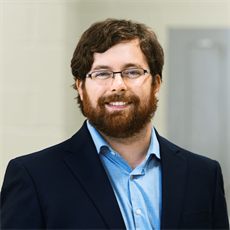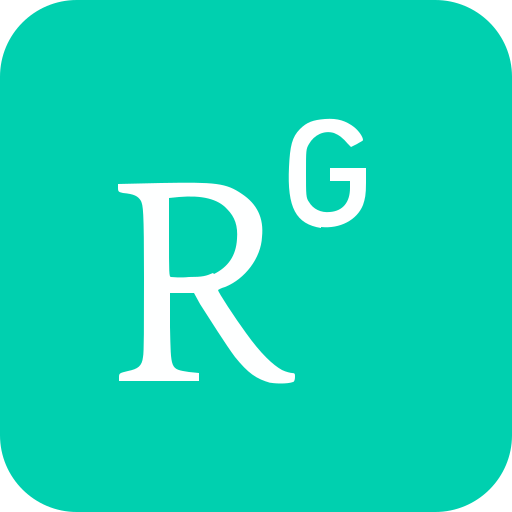
David Themens is an Associate Professor in Space Weather and Space Systems in the SERENE group;
David primarily undertakes research in modelling and mitigating the impacts of space weather on radio communications and navigation systems. More specifically, David explores the effects of changes in the ionosphere, a layer of plasma in the earth’s upper atmosphere, on these systems. His work includes exploring the synergistic properties of different earth observation instruments, measurement technique development, data assimilation, empirical modelling, ionospheric physics, and HF/UHF raytracing.
David is the principal developer of the Empirical Canadian High Arctic Ionospheric Model (E-CHAIM).
UoB Webpage: https://www.birmingham.ac.uk/staff/profiles/eese/themens-david.aspx
- PhD in Physics University of New Brunswick, 2018
- MSc in Atmospheric and Oceanic Science, McGill University, 2013
- BSc (Hons) in Physics, University of New Brunswick, 2011
Dr. David R. Themens earned his B.Sc. (Hon. Phys.) from the University of New Brunswick in 2011, under the supervision of Prof. P.T. Jayachandran, where his research focused on the development of Global Navigation Satellite System (GNSS) receiver calibration and the validation of ionospheric models.
David completed his M.Sc. in Atmospheric and Oceanic Science at McGill University in 2013, under the supervision of Prof. Frédéric Fabry. At McGill, David participated in the development of a scanning microwave radiometer system, designed to make large-scale volumetric measurements of atmospheric water vapour and temperature, which are vitally important to weather forecasting and severely under-observed. David’s research focused on instrument simulation and information theory, attempting to determine the optimal operating frequencies of the instrument and assessing the distribution of information measured by the system. His work demonstrated that traditional use of these instruments discarded large quantities of information, such that simple modifications to traditional measurement inversion methods could produce a more than 10,000% increase in the information provided by scanning microwave radiometers.
David completed his Ph.D. in Physics at the University of New Brunswick in 2018. His Ph.D. research focused on the development of the Empirical Canadian High Arctic Ionospheric Model (E-CHAIM), a high-latitude alternative to the use of the International Reference Ionosphere (IRI) in modelling ionospheric electron density, necessary for HF/UHF signal propagation modelling. During his Ph.D., David acquired a pair of contracts with Defence Research and Development Canada (DRDC) to expand his E-CHAIM model and develop an operational near-real-time data assimilation system for use with Over-The-Horizon-Radar. This continued into David’s postdoctoral research, where he served as Project Lead for the Canadian High Arctic Ionospheric Models (CHAIMs) contracts. For access or information about E-CHAIM and its related systems, check the system website here: https://e-chaim.chain-project.net/
David has a passion for data science and a, perhaps unhealthy, fascination with ionosondes.
David’s research focuses on four main topics: ionospheric modelling, physics, measurement techniques, and radio propagation.
David’s main physics research focuses on the interaction between the ionosphere and the atmosphere. His interests concern the degree to which lower atmospheric forcing drives variability within the ionosphere and the interactions between the ionosphere and thermosphere.
David is also actively expanding and improving upon his E-CHAIM ionospheric electron density model, having recently lead the development of a near-real-time and reanalysis data assimilation system, based on E-CHAIM, and having developed an auroral particle precipitation module and a quiet D-Region for the model.
David’s modelling research is applications-oriented, focusing on the mitigation of ionospheric impacts on radio communications, Over-The-Horizon-Radar (OTHR), and navigation systems. To this end, David conducts ionospheric raytracing for HF and UHF signals to assess the impacts of the ionosphere on these systems and develop mitigation strategies.
David is also highly interested in exploring novel ways to extract new information from existing instruments and infrastructure using non-linear data assimilation techniques.
David is always looking for new Ph.D. students interested in the ionosphere, data assimilation, and radio propagation.
Interested students should send David a complete CV and a one-page (single sided) statement on their research interests.
- International Association of Geomagnetism and Aeronomy (IAGA)'s Geospace Data Assimilation Working Group (GeoDAWG) – Co-Chair: 2023 – Present
- Engineering Institute of Canada Strategic Conference Planning Committee – Member: 2020 – Present
- International Union of Radio Science (URSI): Canadian National Committee (CNC) Chair for Commissions G (Ionospheric radio and propagation) and H (Waves in plasmas): Jan, 2020 – 2023 (3-year term)
- International Union of Radio Science (URSI): Commision G Early Career Representative
- COSPAR International Space Weather Action Teams (ISWAT) G2b-04, G2b-05, G2b-06, and S03-03 - Member: December 2019 – Present
- Canadian Association of Physicists (CAP) Division of Atmospheric and Space Physics (DASP) - Vice Chair: Feb, 2019 – Feb 2021; Chair: Feb, 2021 - Present (3-year term)
- International Association of Geodesy (IAG) - Global Geodetic Observing System (GGOS) Joint Working Group on Ionospheric Electron Density Modelling - Member: 2019 – Present
- Abdus Salam International Centre for Theoretical Physics (ICTP) NeQuick Model Working Group - Inaugural Member: Oct, 2019 – Present
- International Association of Geomagnetism and Aeronomy (IAGA) Canadian National Representative: Sept, 2018 – Present (2 + 4-year term)
- International Reference Ionosphere (IRI) Working Group - Member/Canadian National Representative: July, 2018 – Present



